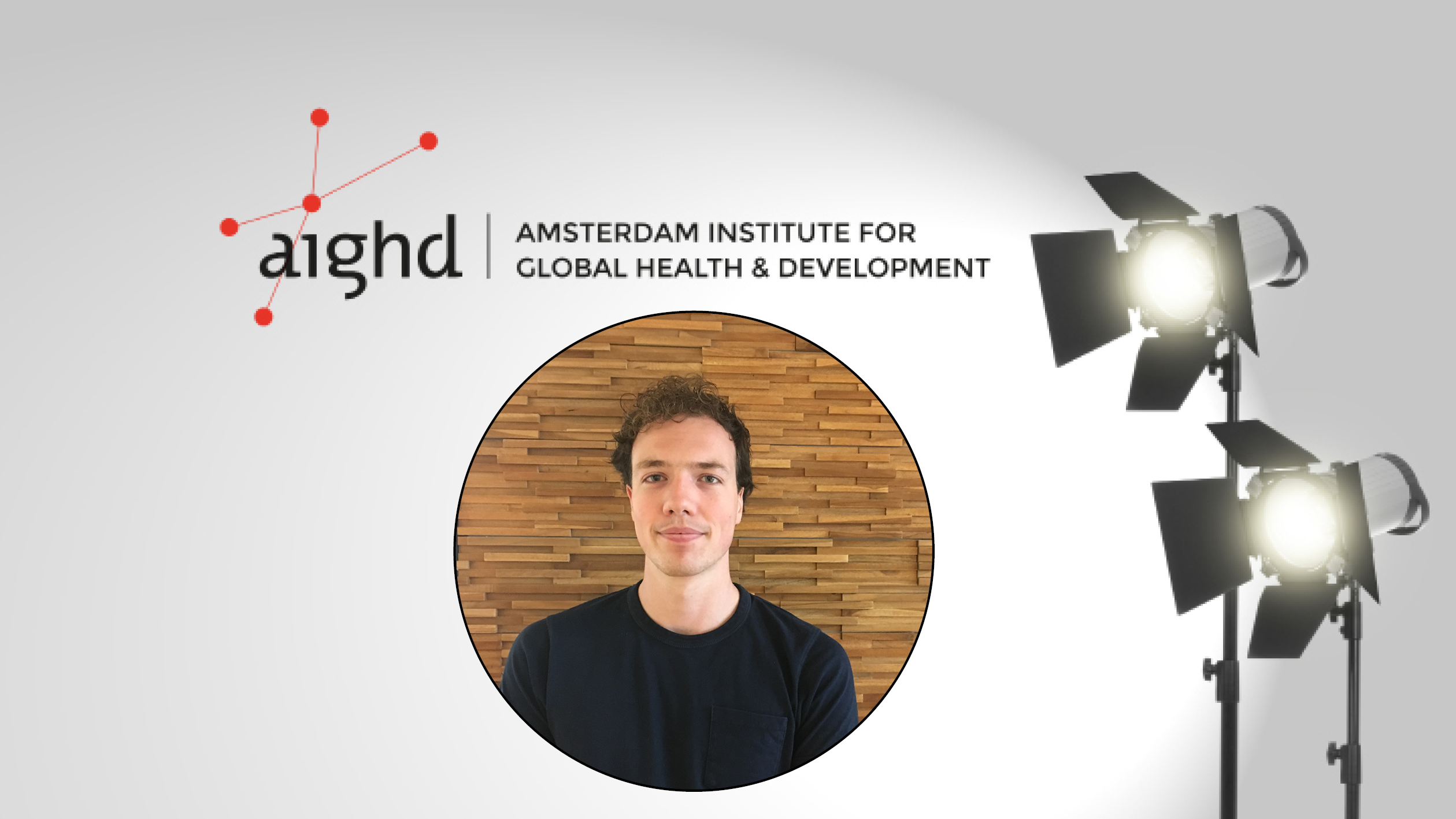
22 Oct AIGHD in Person: Boas van der Putten
Not many people would describe bacteria as fascinating but PhD candidate Boas Van der Putten was so intrigued by them that he decided to pursue a PhD on the topic of antimicrobial resistance (AMR). He met his supervisor Prof. Constance Schultsz through an internship during his masters, and when she later advertised for a PhD position, he applied immediately.
“Bacteria have an amazing ability to adapt to external conditions. If they get in contact with antibiotics, they quickly change their DNA to survive. Some bacteria might die, others develop different levels of resistance. I now look at the DNA of these bacteria to understand them better,” said Van der Putten.
Around 33,000 people die every year in Europe due to AMR, and the trend points towards increasing resistance. Standard treatments will become ineffective, infections will persist and spread to others and without effective antibiotics common surgeries will be difficult to perform. AMR is one of the top research priorities for AIGHD.
“Resistant bacteria isn’t a new topic for many in the science world, though many people still don’t know about it. Nearly 75 years ago, Alexander Fleming cautioned us against resistant bacteria when he accepted his Nobel Prize.”
There are several ways a human can contract a resistant bacterium: during international travel, through contact with animal faeces and through undercooked food to name a few. Once you have a resistant bacteria, it means that drugs that are typically used to treat the illness are no longer effectives and doctors will need to prescribe new or different antibiotics to try and cure the illness. However, resistant bacteria do not always cause disease. Many people harbor resistant micro-organisms without experiencing illness.
“We can try to invent new antibiotics, but that will not help us come to terms with the problem. After a new antibiotic is introduced, we see that bacteria develop resistance quite quickly, so we really need to prevent resistance from spreading from the beginning.”
Researchers have determined several effective ways to curb resistance, two of which are reducing international travel and reducing the use of antibiotics. However, international travel is increasing and so is the use of antibiotics. Hoping that he can find a way to stop resistant bacteria from spreading, Van der Putten’s studies focuses on, E. coli, one of the most common species of bacteria and one that is known to spread resistance.
“I would really like to discover how resistant bacteria spread to humans, and which genetic characteristics of bacteria are involved in this. Once we identify these, we can screen people for them. We might even find that some bacteria spread from different countries or through different channels, and then we can diagnose patients much quicker.”
Finding solutions to a complex problem like AMR requires a complex approach, which is why Van der Putten values working with colleagues from different disciplines at AIGHD.
“The main advantage of working at AIGHD is the broad expertise that we have. I work with statisticians, modelers, microbiologists and with people from other disciplines. I look at the bacteria and the modelers look at the overall patterns in the data. Together, I hope that we are able to predict the spread of antimicrobial resistance in the near future.”
